The 1st February is the start of the WildCats projects year, and this year is no exception. Today, eight projects funded by WildCats Conservation Alliance begin the activities and objectives detailed in their proposals and agreed by the WildCats project review team.
All eight projects are with the NGOs we funded last year. You can read about them on our project pages. The current coronavirus pandemic focused our attentions on supporting our existing partners to provide continuity rather than adding new grantees into the mix at this uncertain time.
Reports from projects activities and impacts in 2020 are expected in March and April and we will be sharing details of what will have inevitably been a challenging conservation year for our grantees around the world. In the meantime read on for what the plans are for 2021.
- monitor Amur leopards and tigers by camera trapping, snow tracking and other methodology to provide robust data on population numbers of Amur leopards, tigers and prey species.
- Protect the landscape and wildlife by ensuring effective patrolling by park staff using standardised methods, effective data collection and analysis that feeds into PA management strategies.
- Educate and train PA staff, educators, children and young people, communities, veterinarians and other members of society that share the landscape with these vulnerable wild cats.
Indonesia, both FFI and Lingkar Institute:
- maintain pressure on poachers in and around Kerinci Seblat National Park in Sumatra.
- work with local authorities to mitigate the effects on wildlife and landscapes caused by the growth of rural poor during the COVID-19 pandemic.
FFI
- work with the PA to focus the six Tiger Protection and Conservation Units (TPCUs) on wildlife crime investigations, intelligence-led patrolling and human-wildlife conflict.
Lingkar Institute
- uses its experience to work with local communities to help recidivists who may be tempted back into wildlife poaching.
Thailand
- Freeland is continuing a large scale monitoring project in Khao Laem, until now a little-studied National Park. This year they plan to start tackling a problem that occurs throughout PAs in Thailand – illegal grazing of cattle by large scale farmers.
Nepal
- ZSL focus on the extension area of the Parsa National Park and this year aim to improve the habitat for tigers and prey by restoring grasslands and introducing a new waterhole following recommendations from the recent report on the Chitwan-Parsa Complex carrying capacity.
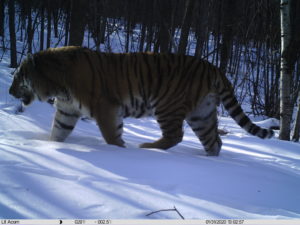
Caught on camera in Hunchun China in 2020 © WCS
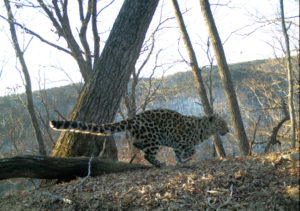
Amur leopard in Russia © WCS
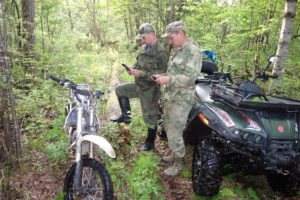
Issuing citations © Phoenix Fund
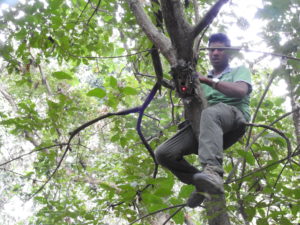
Fixing a spy camera © AnoAmur/ZSL
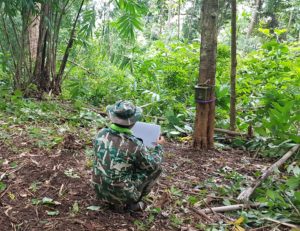
Monitoring in Thailand © Freeland
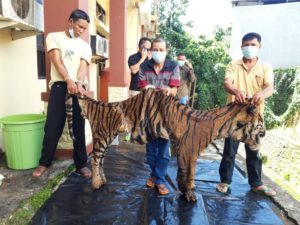
Poachers caught in Sumatra © KSDA/FFI/Lingkar
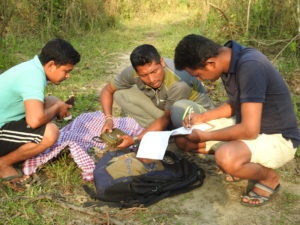
Monitoring team in Nepal © ZSL

